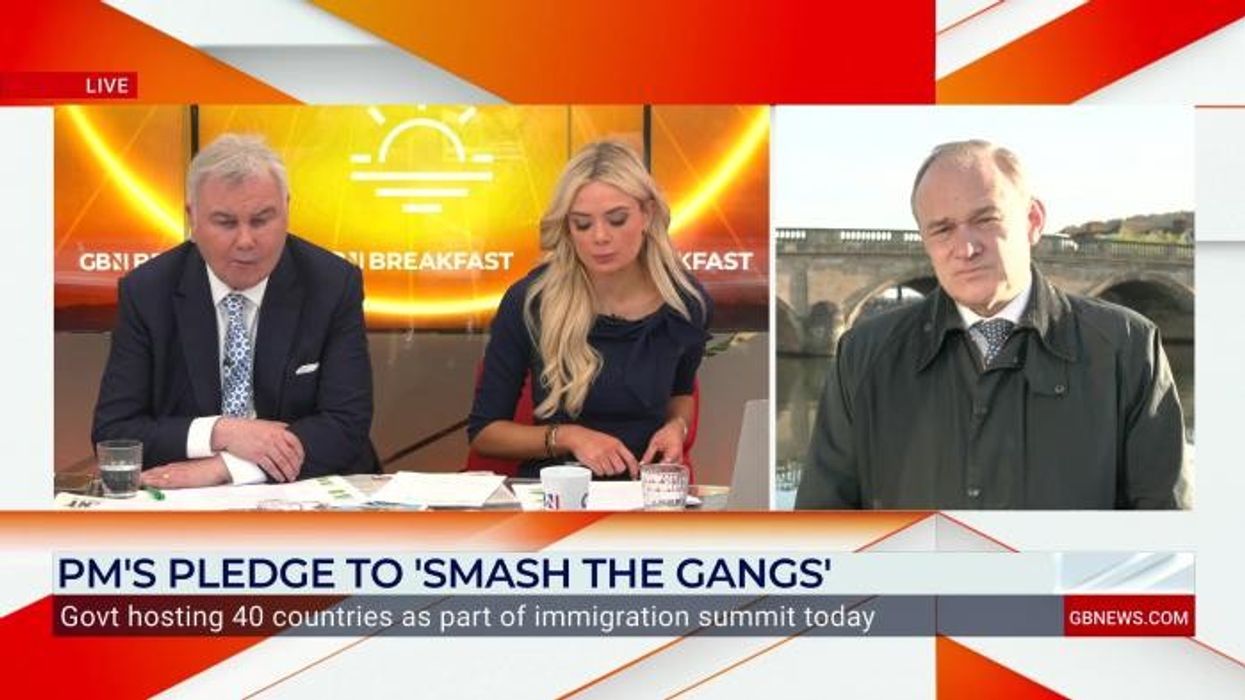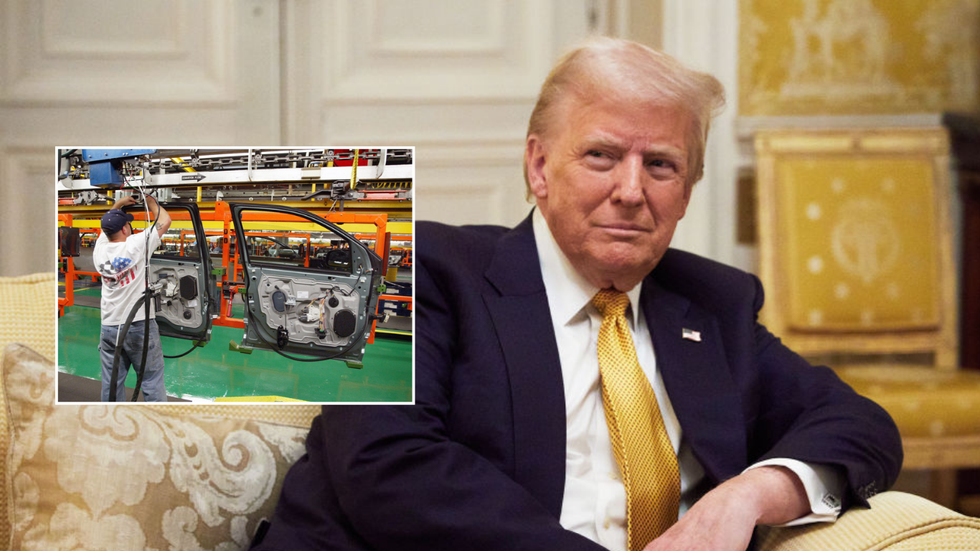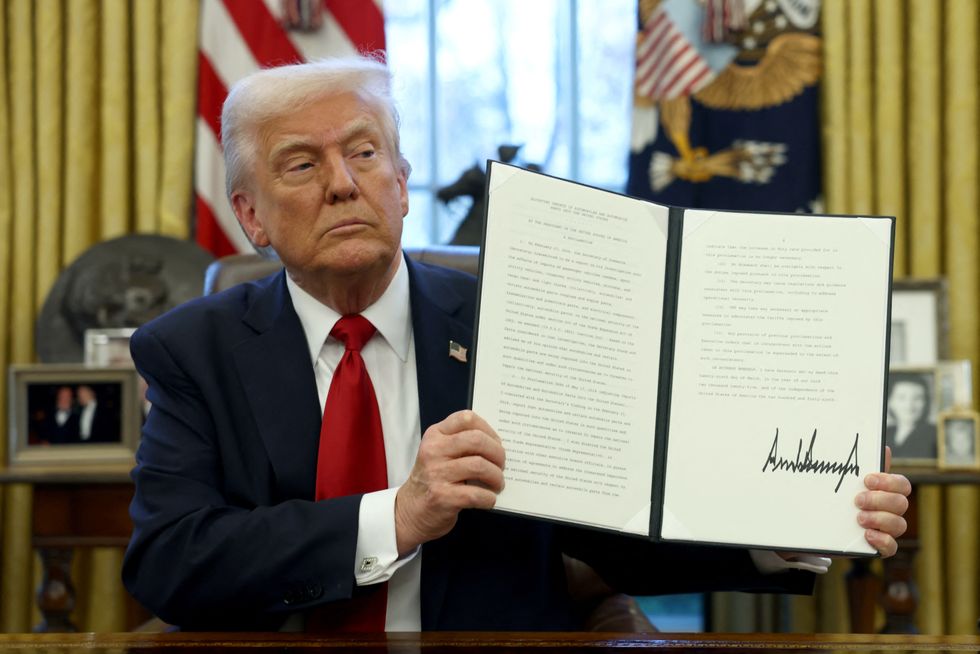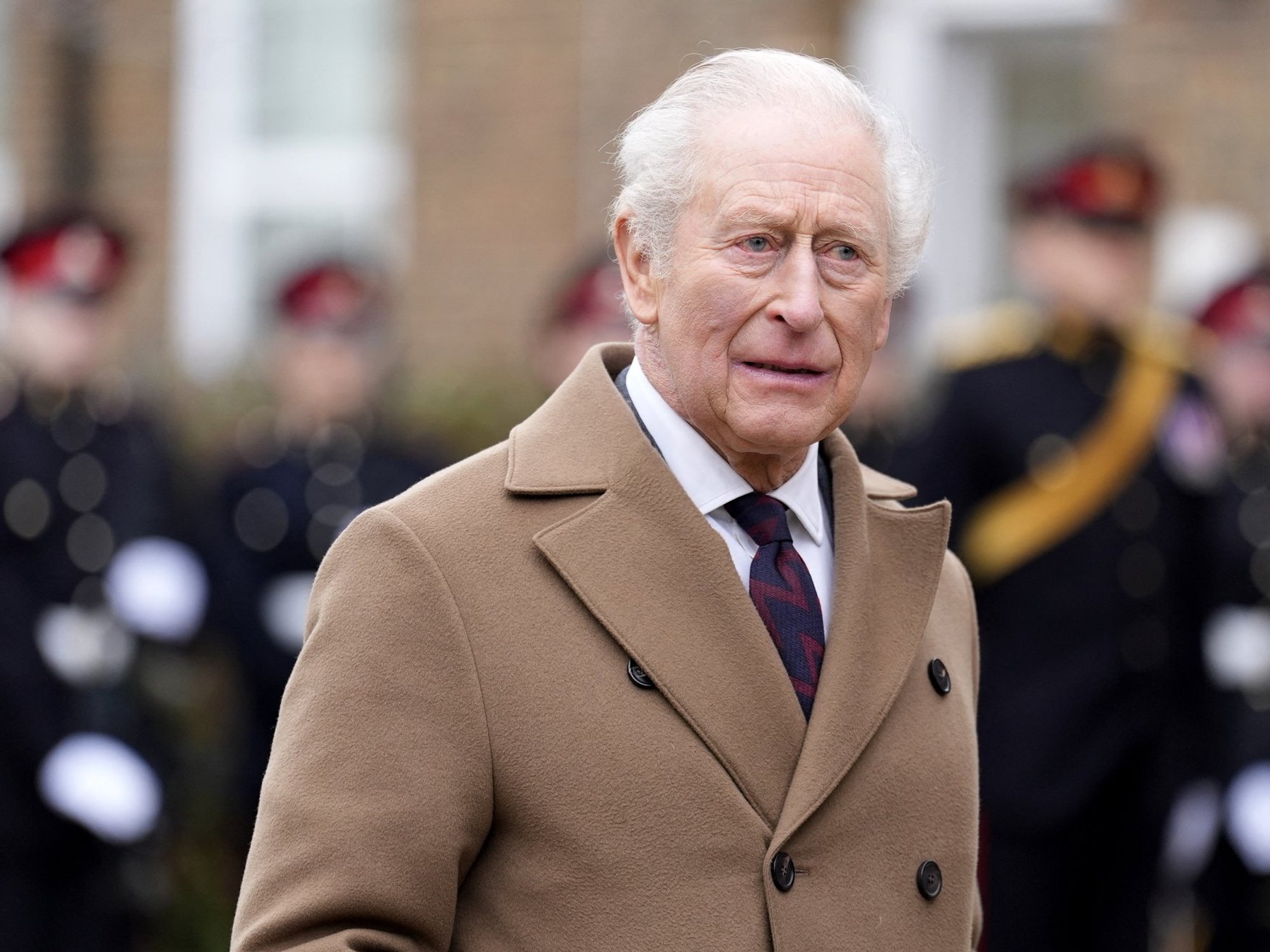Trump’s 25% auto parts tariff comes into effect impacting global carmakers and millions of jobs

WATCH: Sir Ed Davey on Trump's 25 per cent tariff on foreign car imports
|GB NEWS

The tariff on engines, transmissions and other key car parts came into effect for global car brands
Don't Miss
Most Read
Carmakers have been warned that President Donald Trump’s 25 per cent tariff on engines, transmissions and other key car parts imported into the US came into force yesterday, raising pressure on an industry already navigating significant policy changes.
The new tariff on car parts follows a similar 25 per cent import tax on cars that went into effect last month, with major car brands now facing huge disruptions and cost hikes.
Trump has said the measures are intended to push carmakers to increase manufacturing in the United States, but has already seen many carmakers react negatively to it, with some halting production in the US completely.
The tariffs have sent shockwaves through the global automotive industry, with manufacturers scrambling to adjust their supply chains and production strategies.
Do you have a story you'd like to share? Get in touch by emailing motoring@gbnews.uk

The tariff hopes to push carmakers to increase manufacturing in the United States
|GETTY
The measures come despite warnings from industry groups about higher prices and risks to production and sales. In late April, Trump eased the impact of these tariffs after significant industry pushback.
The modifications allow companies with US factories to reduce the amount they pay in import taxes on foreign parts.
Under the plan, carmakers can claim an "offset" worth up to 3.75 per cent of the suggested retail price of all cars they assemble in the US in the first year. This figure drops to 2.5 per cent in the second year, creating a two-year transition period for manufacturers.
The White House said the rules were designed so that a car with 85 per cent of its parts made in the US, Canada or Mexico would not face any tariffs. This threshold rises to 90 per cent in the second year.
Trump's modifications also include exempting parts made in Mexico and Canada in compliance with the existing free trade agreement from the duties.
Companies that pay tariffs on cars and parts will not be charged other duties the administration has imposed on steel, aluminium and goods from Canada and Mexico.
However, the tariff relief does not apply to Chinese parts, which will continue to be subject to Trump's latest tariffs of at least 145 per cent in addition to any prior duties.
The changes came after a coalition of US motor industry groups urged the President not to impose the measures on parts. Automakers have been quick to highlight the financial impact of the tariffs.
General Motors warned it expected to lose as much as £3.7billion in new costs this year as a result of the measures. This includes roughly £1.5billion in charges on cars it makes in South Korea and exports to the US.
GM executives said they now expected prices to rise roughly one per cent instead of falling as previously forecast.
Other car companies have expressed similar concerns about the uncertainty, with Stellantis, maker of Jeep, Fiat, and Chrysler, withdrawing its financial guidance for the year ahead, citing the fluidity of the situation.
"We remain subject to extreme uncertainties," Stellantis' chief financial officer Doug Ostermann told analysts last week.
Meanwhile, several manufacturers have announced production adjustments in response to the tariffs.
General Motors said it had expanded truck production at its factory in Fort Wayne, Indiana, by about 50,000 vehicles as a direct result of the tariffs. The company also announced it would cut back output in Canada.
LATEST DEVELOPMENTS:
 Donald Trump confirmed that a 25 per cent tariff would apply to all foreign car imports | REUTERS
Donald Trump confirmed that a 25 per cent tariff would apply to all foreign car imports | REUTERSMercedes indicated it had the flexibility to expand at its factory in Alabama. These shifts suggest companies are reallocating production rather than expanding overall capacity.
The car maker’s chief executive, Ola Källenius, told reporters: "I don't think I've experienced a higher level of complexity in my 32 years in the business.
"We're also dependent on the ability to import and export in all directions if restrictions, tariffs, or other trade barriers arise, that is not good for general global trade and would affect us as well."










